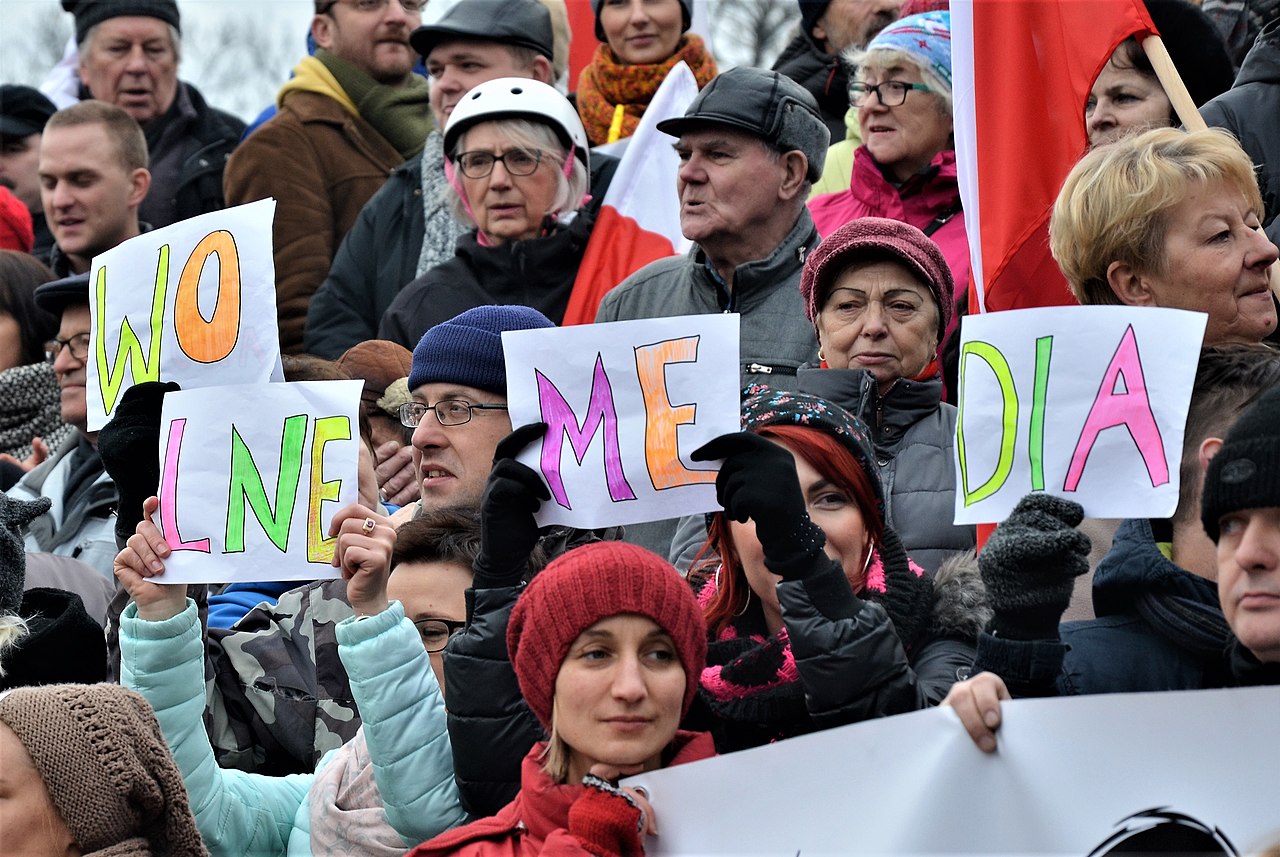The International Journalism Festival weekly round-up. Stay up to date by subscribing to our newsletter, by following our Telegram channel, or by joining us on Facebook and Twitter.
The erosion of media freedom gathers pace in Poland. Media freedom in Poland now faces its greatest set of challenges since 2015 as the government continues to wage a multi-pronged attack on independent media to muzzle critical reporting and undermine watchdog journalism, according to a new report by the Media Freedom Rapid Response.
Polish editor: why I blacked out my front page. “The purpose of the proposed new tax is clearly political – to hurt media, to show the power of the state … to tell us: ‘If you keep being insolent, then we’ll hit you even harder.”
Hungary’s clampdown on independent media is almost complete. Klubrádió, one of the last media outlets in Hungary willing to criticise the government, is being taken off air. Press freedom experts are warning that this is an issue the EU “can no longer afford to ignore.”
An open letter by RSF to European institutions to end the media crackdown in Belarus. Since 9 August 2020 there have been about 400 cases of journalists being arrested just for doing their job.
The #OpenLux investigation by @OCCRP into money laundering and the hiding of financial assets in Luxembourg. Luxembourg is a tiny country — officially a Grand Duchy — that sits on barely more than 2,500 square kilometres of land wedged between Germany, France, and Belgium. So why is it the world’s second-biggest destination for foreign capital? Secrecy.
Google News Showcase is launching in the UK. Google’s new product experience and licensing program for news will begin rolling out with local, national and independent publishers in the UK. As part of the licensing agreements with publishers, Google is also launching the ability for readers to access select paywall content. This feature will give readers the opportunity to read more of a publisher’s content than they would otherwise have access to, while enabling publishers to encourage readers to become a subscriber.
Note to reporters: if surveillance data shouldn’t exist, then don’t use it. The professional ethics of surveillance reporting must keep up with the times. It’s sometimes difficult to decide what kind of materials journalists should and shouldn’t share with the public, but a clear line can be drawn: if you have geolocation data on the general public, just don’t publish it.
Twitter vs. India. Twitter is defying a democratically elected government. We should all watch what happens next.
How China’s pandemic propaganda muzzles citizen journalists. China will soon award media accreditation based on social media history. Journalists who uncovered the early truths about the coronavirus in China fear that their press credentials will be stripped.
Disinformation on Twitter in South Africa. A report by Africa Check and the Atlantic Council’s Digital Forensic Research Lab in three parts: i. disinformation actors, their behaviour and content ii. how much damage can a hashtag cause? iii. what can individual social media users do about disinformation?
Egypt frees journalist after 4 years in jail. The Egypt government has released Al Jazeera journalist Mahmoud Hussein after more than four years in detention on accusations of publishing false news.
Second Hong Kong radio host arrested for sedition. A Hong Kong internet radio host was arrested on Sunday under a little-used colonial era sedition law that authorities have begun to wield against Beijing’s critics. Officers from the police’s national security department arrested 52-year-old Wan Yiu-sing on a charge of “seditious intent”, according to a police statement.
Photo credit: Silar, CC BY-SA 4.0 , via Wikimedia Commons


